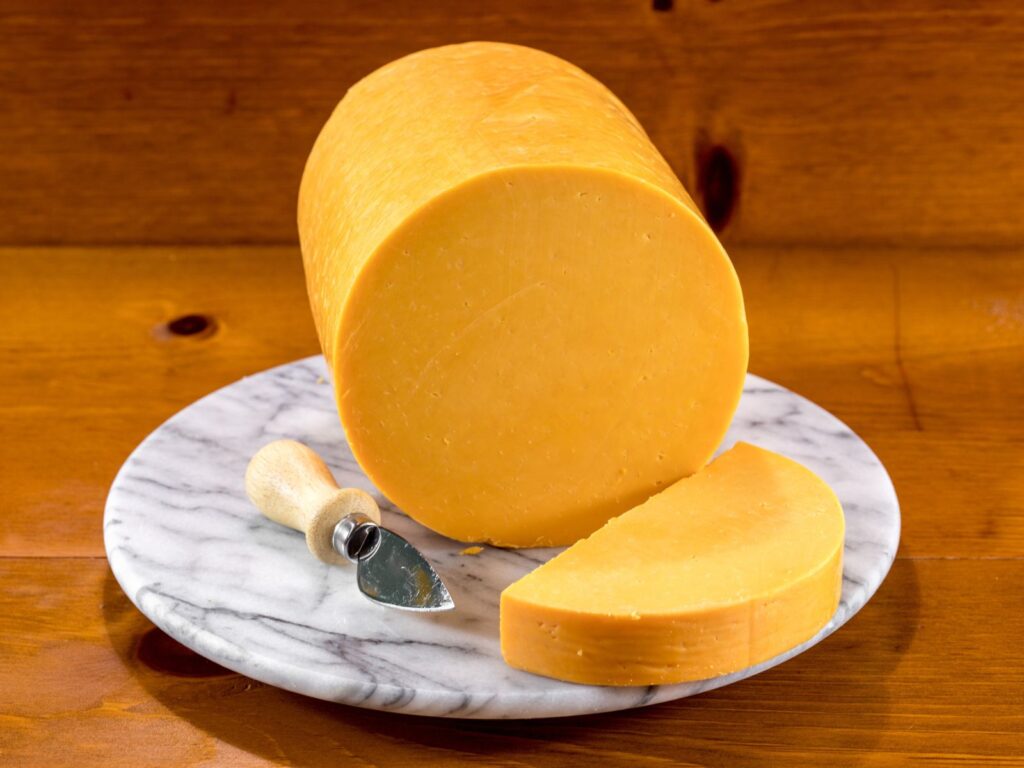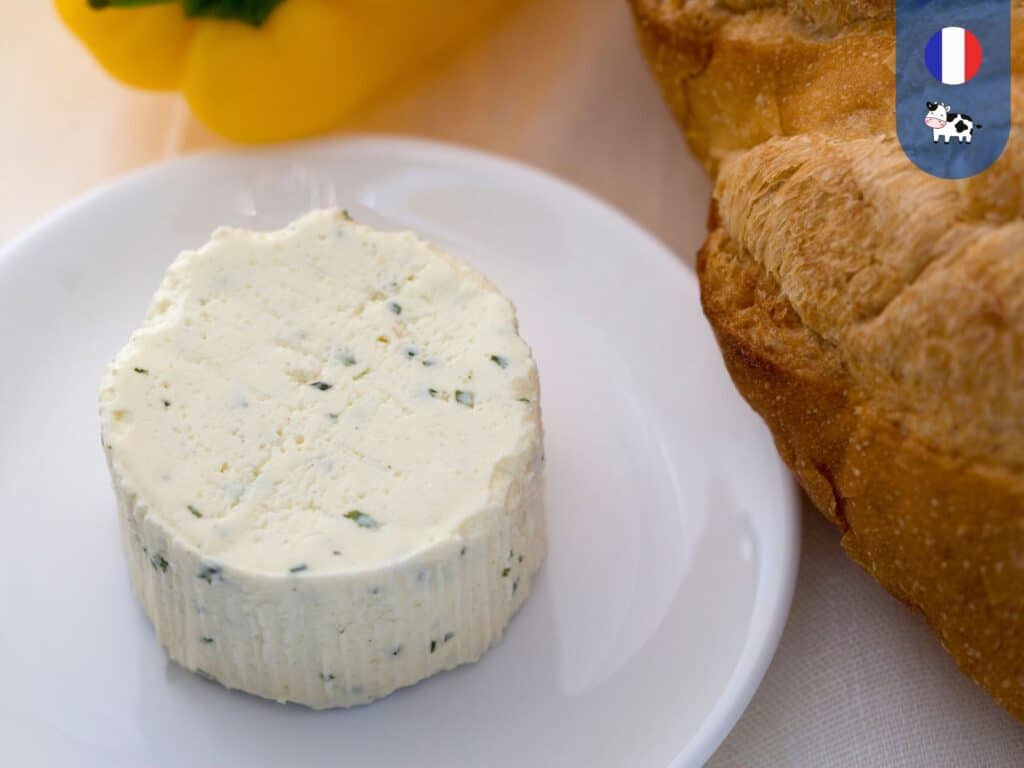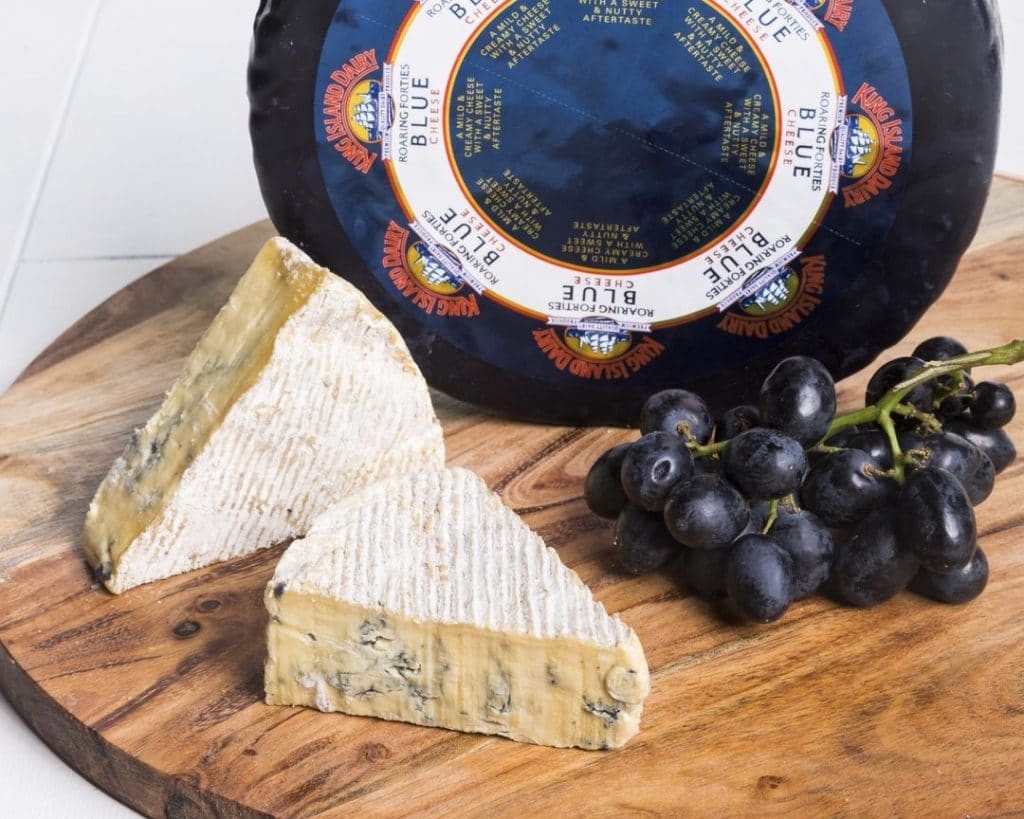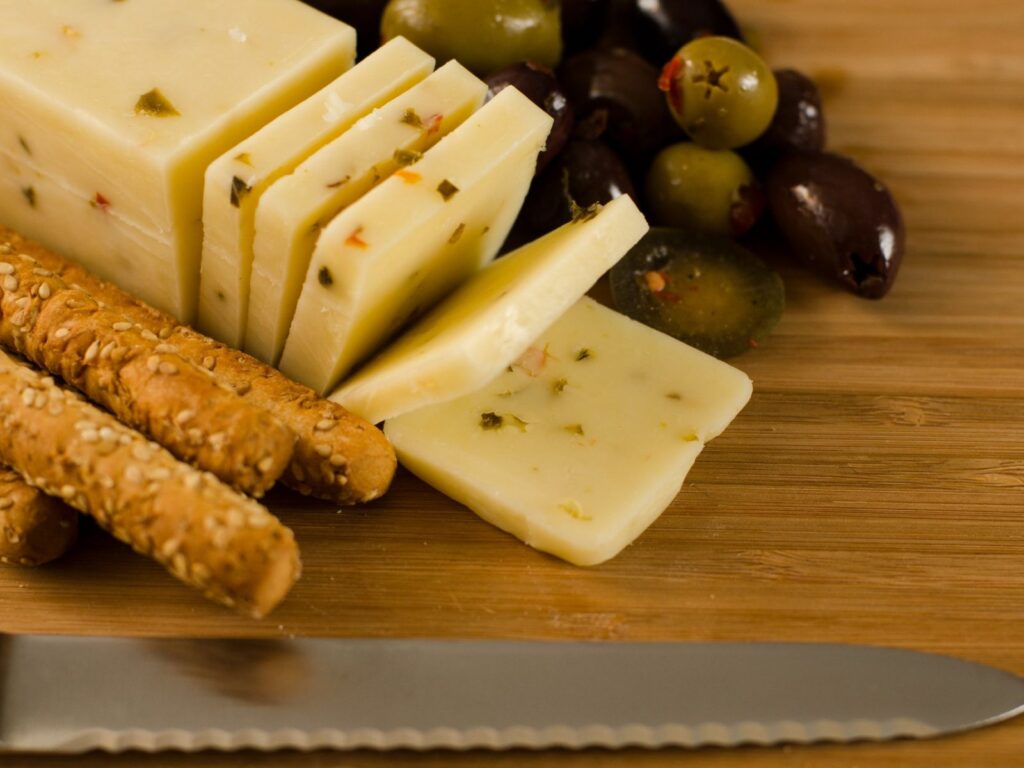Cambozola is a German soft blue cheese that brings together the best of Camembert and Gorgonzola
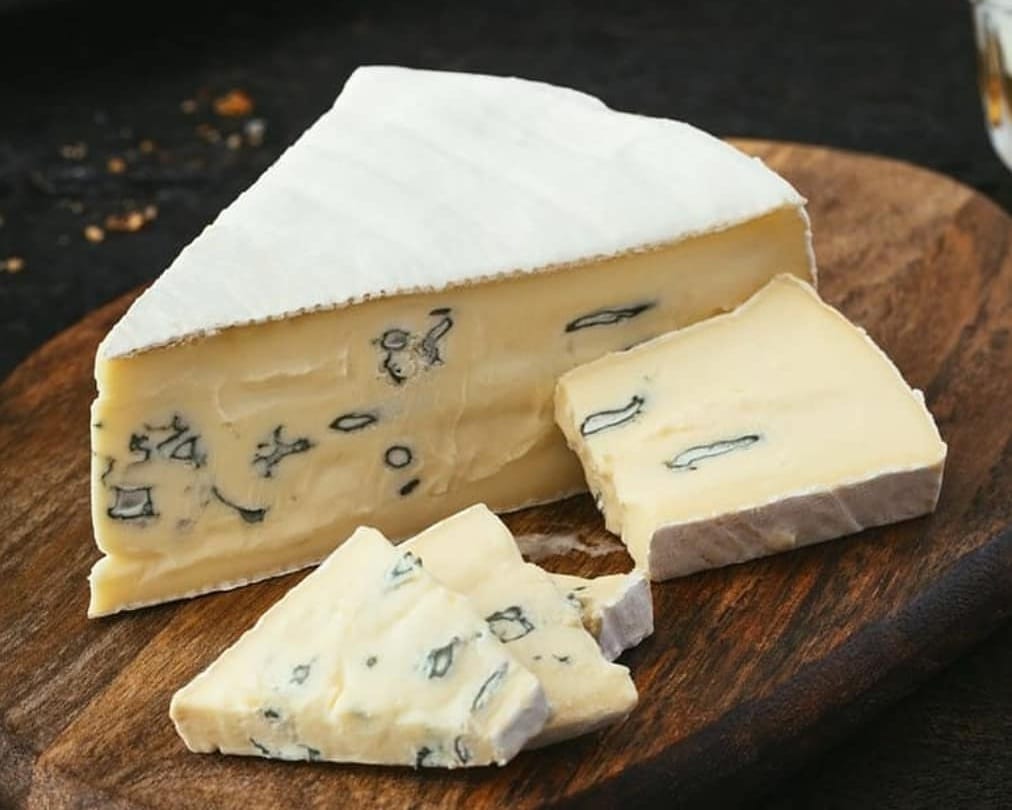
What is Cambozola?
Cambozola is a soft blue cheese that originates from Allgäu region in southern Germany.
Effectively, this original German cheese brings together the best parts of two classic European cheese recipes. Indeed, it is inspired by French Camembert and Italian Gorgonzola.
The story behind the name
There are two stories behind the cheese’s name. Firstly, it appears to be a combination of Camembert and Gorgonzola.
Moreover, Cambozola’s manufacturer, Champignon, is based in a small town called Kempten. As a matter of fact, the old Roman name for the town was Cambodunum. As such, the cheese’s name could actually a mixture of the town it comes from and Gorgonzola.
How Cambozola is made
Overall, there are two popular versions of Cambozola, the young Classic and the matured Black Label.
Effectively, production starts in the same way for both cheeses. Firstly, the cheesemaker adds fresh cream and two separate moulds to pasteurised cow’s milk: Penicillium camemberti and Penicillium roqueforti.
Black Label Cambozola
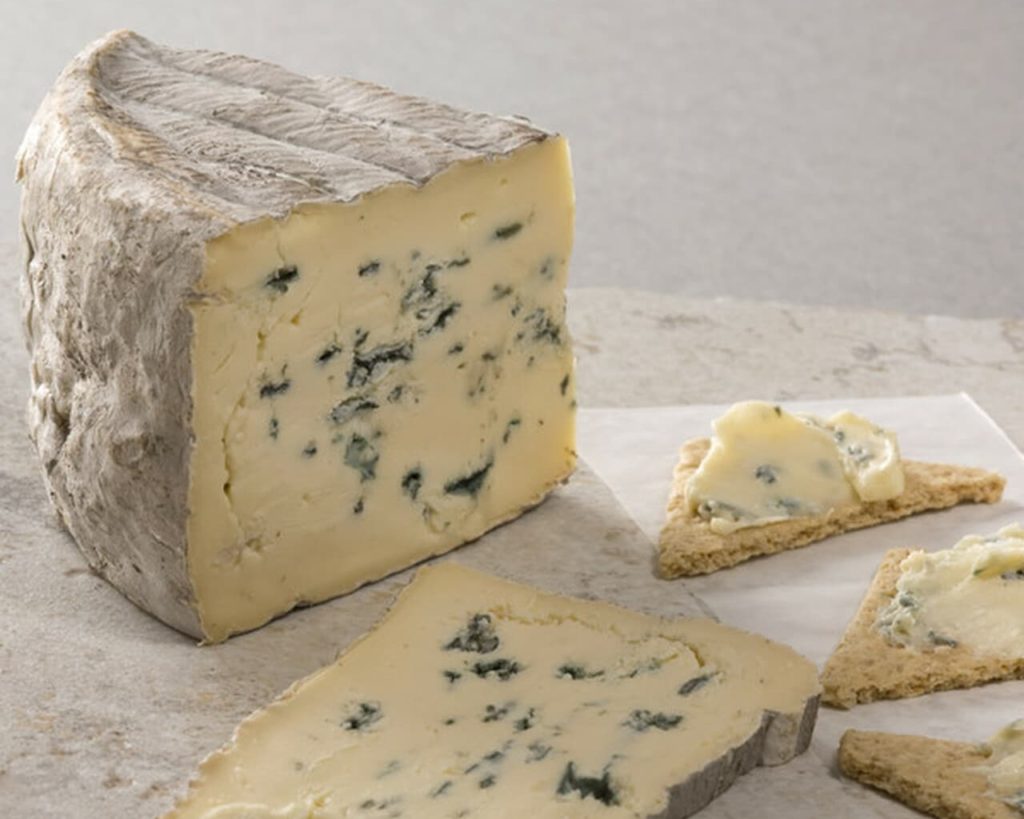
As you have most probably guessed from the names, the first mould imparts the fuzzy white mould on the rind. And, the second is responsible for the blue vein pockets inside the cheese.
However, the Black Label version is matured for longer. As a result, it develops a gorgeous natural grey rind around the cheese. Furthermore, the general texture of the cheese is a bit firmer, with a more aggressive blue veining.
What does Cambozola taste like?
Unsurprisingly, the rich triple cream paste has a buttery mouthfeel with mild earthy and savoury notes. In addition to this, the delicate blue pockets add a mild spicy blue flavour to the Classic version.
On the other hand, the Black Label has more nuance with a more robust blue flavour.
How to serve Cambozola
Before serving, it is imperative to take this cheese out of the fridge at least 30 minutes. Once it is at room temperature, serve on a cheese board with figs, blackberries and grapes.
Moreover, wash it all down with a semi-dry Riesling or a sweet Sauternes.
Substitutes for Cambozola
If you can’t get your hands on this German blue, Gorgonzola Dolce would be a very suitable alternative. However, if you would prefer a cheese from the same country, Bavaria Blu is a great option.
